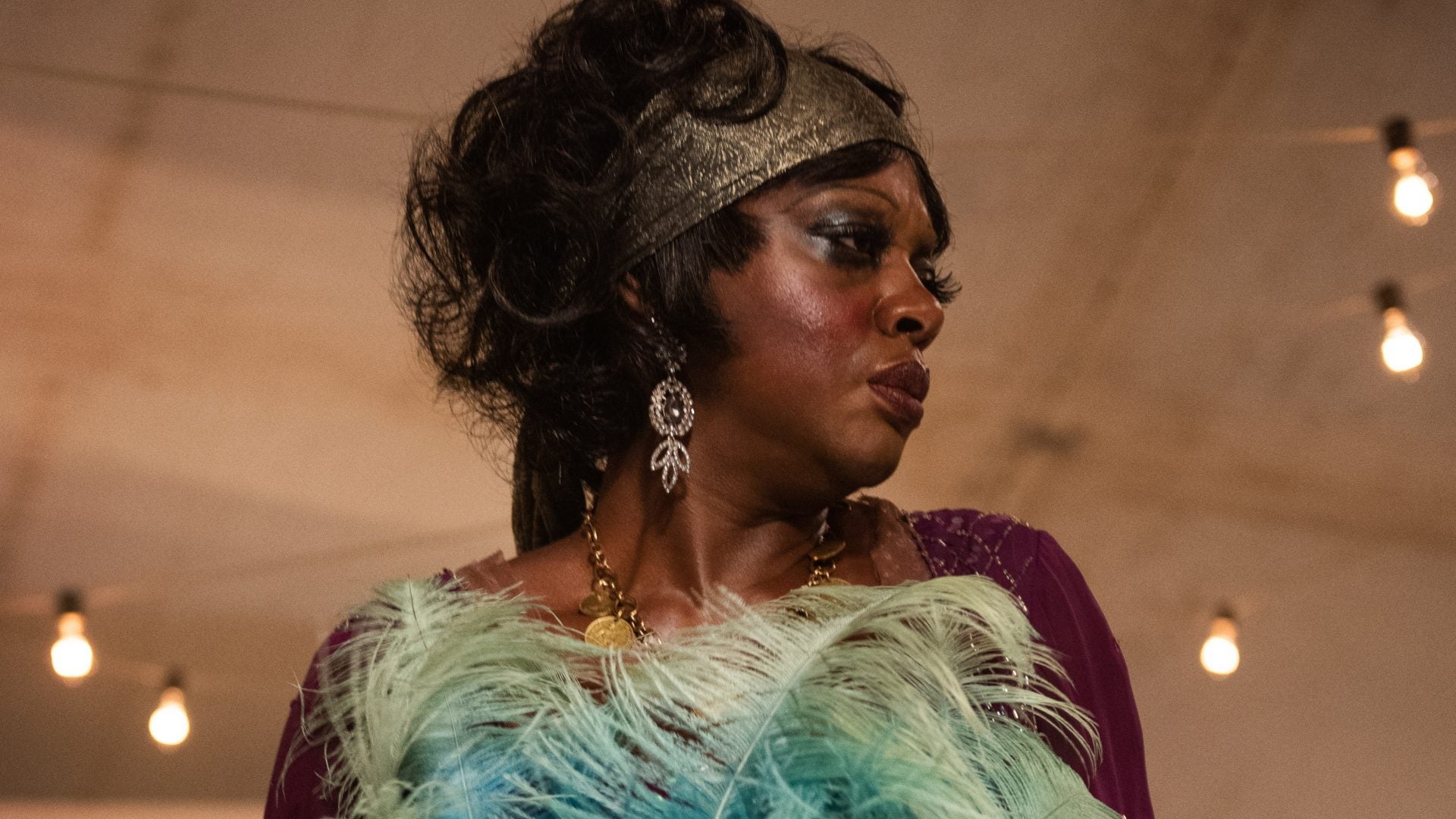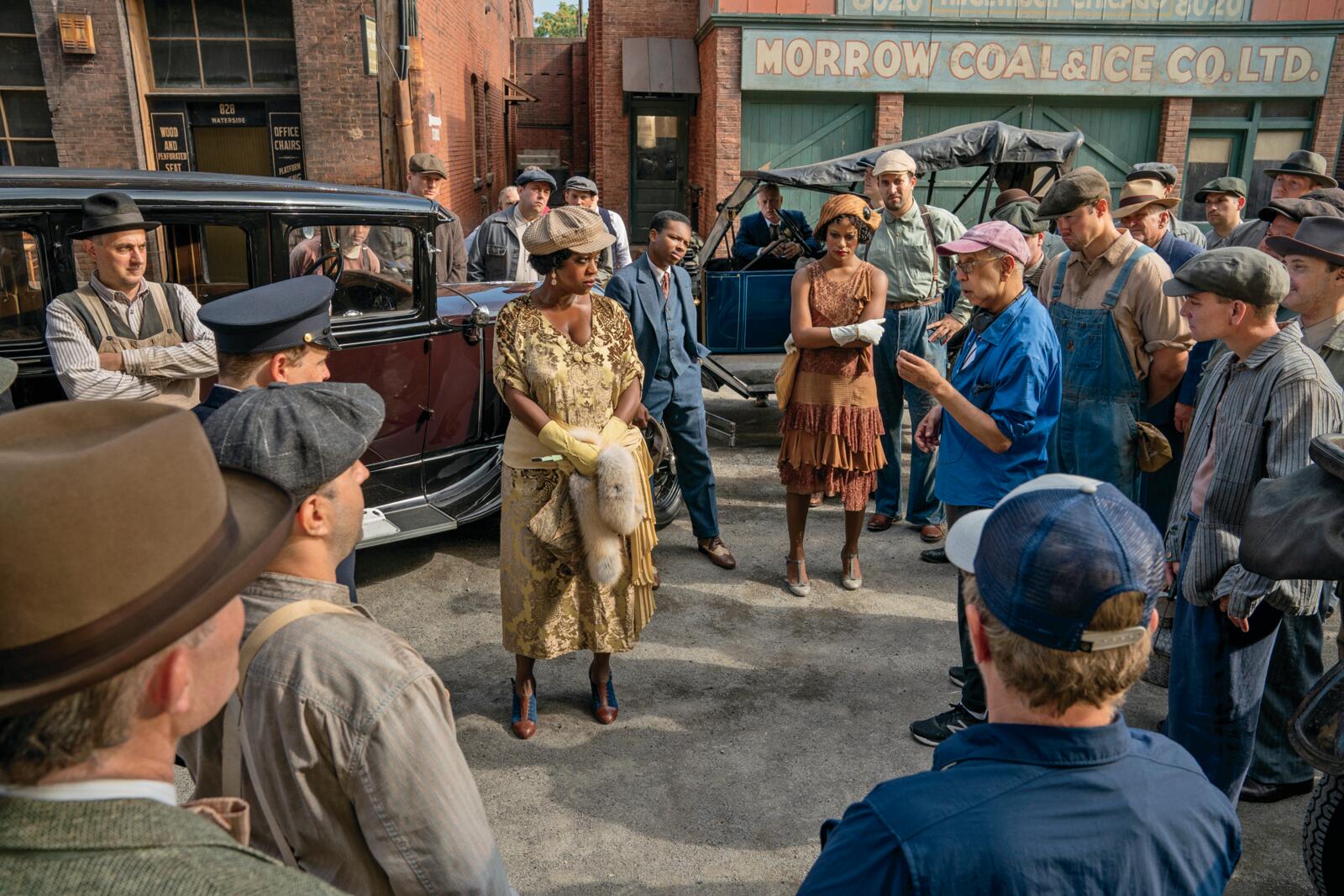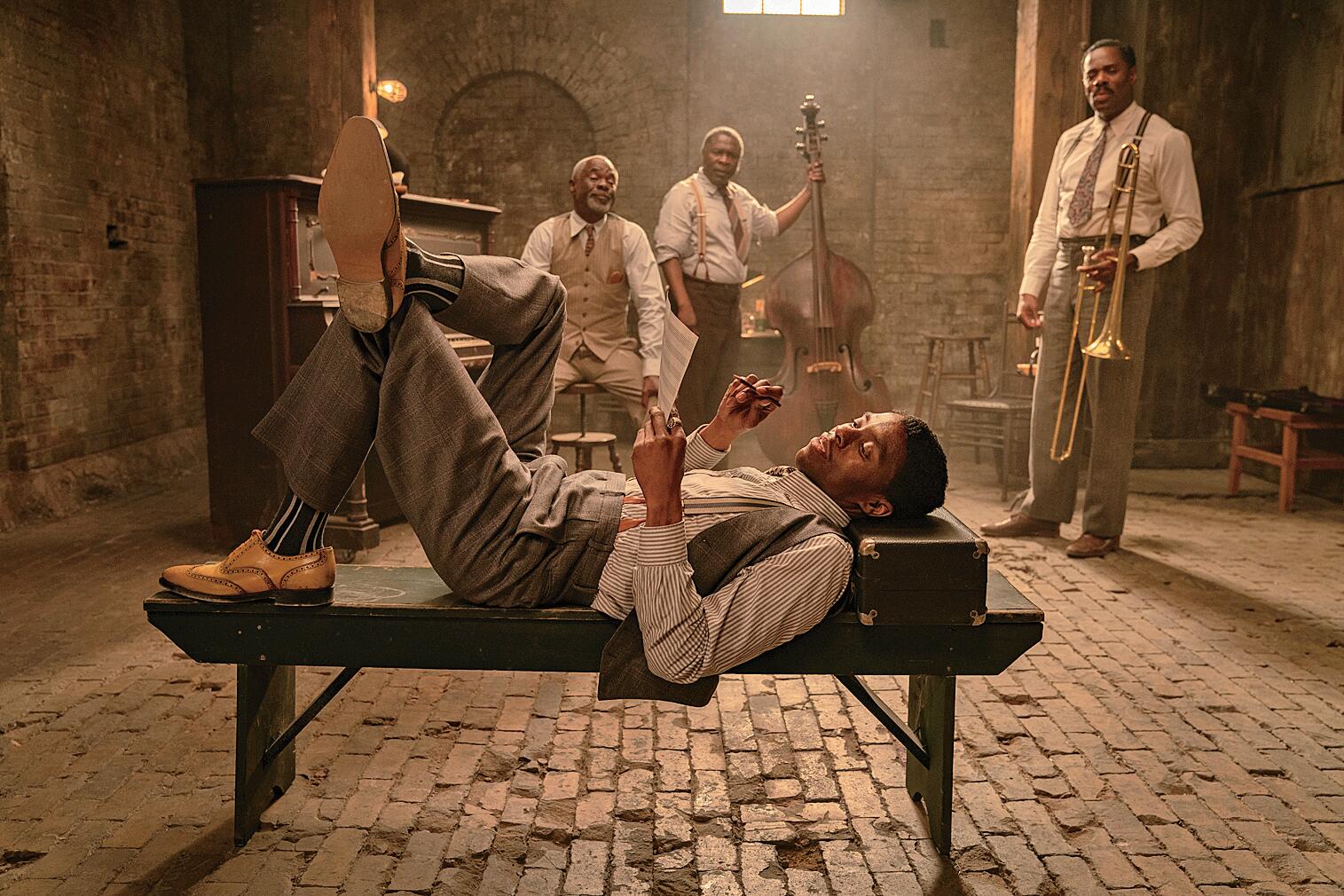
It makes all the sense in the world that Ma Rainey’s Black
Bottom—the magnificent, must-see film directed by George C. Wolfe, starring Chadwick Boseman and Academy Award–winner Viola Davis—would come out in 2020. Because if ever there was a Year of Our Lord that knows something about the blues, 2020 would be it.
The story centers around a recording session in Chicago in the summer of 1927. Mother of the Blues Gertrude “Ma” Rainey—played masterfully by a damn-near-unrecognizable Davis—has come North from her tour down South to record an album; her accompanying band (Glynn Turman, Colman Domingo, Michael Potts and then-17-year-old Dusan Brown) awaits her late arrival, as do her manager and the studio owner. Ma lives by her own rules, and she has a deep understanding of the power she possesses, both as a Black artist and a Black woman.
Boseman, in his final film appearance, is electrifying as Levee—a young, ambitious trumpeter who wants his own band, flirts with Ma’s girlfriend (played by Taylour Paige) and bucks Ma’s traditional compositions for a more modern sound. Tensions build as the day unfolds, as the music plays, as truths get told.
The film was shot in Pittsburgh—home of Pulitzer Prize-winning playwright August Wilson, whose original Ma Rainey’s Black Bottom premiered on Broadway in 1984. This cinematic offering is a reunion of sorts. Longtime Wilson collaborator Ruben Santiago-Hudson wrote the screenplay, and the film was produced by Tony award-winner Denzel Washington, who played the lead in Wilson’s Fences on stage and on screen. After two weeks of rehearsal, the cast began filming in summer 2019, wrapping just before fall.

A year later, while the footage was in pandemic post-production, Boseman died of colon cancer at age 43. “It’s just too painful and devastating to talk about” Wolfe says, “but as an artist, Chadwick was incredibly gifted.”
“When you’re working on anything,” Wolfe continues, “you want the smartest, most skilled people in the room—because in the end, the conversation becomes elevated, and the talent is there to help elevate it. Then, I think, wondrous and magical things can happen.”








And so they did. The ensemble members are at the heights of their powers here, delivering gut-punching performances that linger long after the credits roll. In this way, Ma Rainey feels so much like a blues song, down to the last frame. And though the story takes place almost a century ago, its relevance to right now is striking. “If you’d asked me last year what this film is about, I would’ve said Black migration and what was lost by going north,” says Wolfe.
But in the Covid-19, Black Lives Matter era, he reflects, “the relevance has intensified. It’s now, to me, about the sins and the scars. How do you go forward when the sins and the scars have never healed? How can you build, trying to go forward into the future, while haunted by the crimes and sins of the past? That’s not just a Black story, that’s the American story.”
This interview originally appeared in the November/December 2020 issue of ESSENCE magazine, available on newsstands now.






